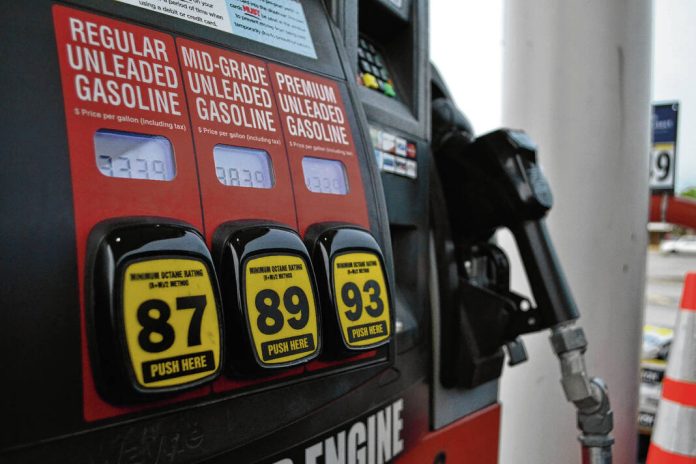The Environmental Protection Agency is issuing an emergency fuel waiver to help alleviate gasoline shortages in four Midwest states after the shutdown of a refinery in Illinois.
Exxon Mobil shut down its refinery in Joliet, Illinois, last month after a power outage when tornadoes and severe storms swept through the region. Power has been restored, but it can take weeks to restart a facility like the Exxon Mobil refinery about 40 miles outside of Chicago, which can produce about 9 million gallons of gasoline and diesel fuel per day.
In addition to Illinois, the waiver was approved by the EPA for Wisconsin, Indiana, and Michigan.
Federal rules mandate the sale of low Reid Vapor Pressure gasoline during the summer months because a higher RVP evaporates more easily and can add to ozone pollution and smog. That is what is being waived temporarily, along with reformulated gasoline requirements for the four states. Reformulated gasoline is blended to burn more cleanly than conventional gasoline and to reduce pollutants in the air.
The waiver will continue through Aug. 20.
Gas prices in the four states spiked higher after the storms and all have gasoline that costs more than $3.45 a gallon on average, according to AAA.
In Illinois, it’s approximately $4 a gallon, which is currently among the highest in the country. Gas prices in California and Washington are over $4 a gallon, where higher gas prices are more typical.
Indiana’s average gas price Thursday was $3.55 per gallon, but Marion County’s price was $3.48, matching the national average, according to AAA.
Prices in the northwest part of the state reached as high as $4.01 per gallon.
The EPA and Department of Energy evaluated the situation, as required by law, and determined that granting a short-term waiver was in the public’s best interest.
The EPA and DOE are continuing to actively monitor the fuel supply situation caused by the refinery shutdown and are considering additional measures to help alleviate its impact.





